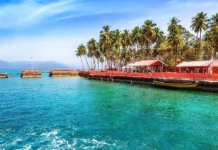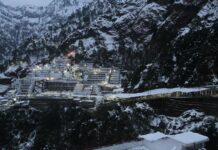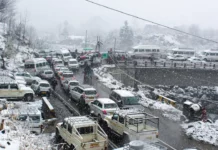 If you have traveled far and wide you will appreciate how Turkey has preserved its culture and traditions over centuries. Be-
If you have traveled far and wide you will appreciate how Turkey has preserved its culture and traditions over centuries. Be-
cause of its strategic location between Asia and Europe, it has seen several empires like Greek, Roman and later Ottoman conquered and fallen. They left behind rich traditions which present day Turkey can boast of.
It is now bustling with tourists from all over the world and has also become one of the key centers for commerce. Turkey has turned into a model of how a predominantly Muslim nation can co-exist with all other religions.
Such examples are everywhere, when one visits the monuments and bazaars. There are several places one can venture, depending on your time and interest. If you are there for few days there are a few places I would strongly recommend visiting. They are Hagia Sophia, Blue Mosque, Basilica Cistern, Dolmabahce Palace, Topkapi Palace.
Besides seeing these monuments, one should find time for a walking tour of some parts of the city especially the Taksim Squire, Isiphiti Street the Tower, the famous Grand Bazaar and of course the Spice Market.
The smell of spices and Turkish sweets can drive you nuts.
Day tours can be very tiring but don’t forget to treat yourself with some Turkish bath available everywhere.
One can also end the tour on board one of the best short cruises in Istanbul by night in the Bosphorus Strait which separates Asia and Europe. They serve eight course dinner. There are cultural programs including Belly Dancing with breathtaking view of the skylines of Istanbul.
IMPORTANCE OF ISTANBUL
At the south of Istanbul is the Marmara Sea, and at the north the Black Sea are situated.
The Western part of the city is in Europe, and the Eastern is in Asia. The important watercourse that divides Istanbul is the Bosphorus. As a seaport both the closest Asian city to Europe and the closest European city to Asia, and the passage of all commerce ways from here, increases the importance of Istanbul.
Positioned between 280 01′ and 290 55′ eastern longitudes and 410 33′ and 400 28′ latitudes, Istanbul is among the best cities of the world with its location as a bridge between Europe and Asia. This geographical location gives characteristics of East and West to the city at the same time.
MILD CLIMATE
Located on the northern west of Turkey, Istanbul has a mild climate. It is possible to live all four seasons.
In April and May, a short and cool spring is experienced in Istanbul. In June, you feel both summer and spring. In July and August, it is a moist summer with 30 degrees on average.
From September till December, a long fall awaits you… In fact the weather doesn’t get cooler, and in this season when it often rains, it is possible to swim almost until September. But it also rains frequently.
From December till March, especially nights are cold, but you face a soft winter. Rarely are there snowy and freezing winter days.
CAPITAL OF ECONOMY
The city, bearing the position of being the country’s economic locomotive can be defined as ‘private sector’s management’, the ‘capital of economy’. Therefore, headquarters of all companies in all sectors are located in Istanbul. The rest of the financial institutions conducting the money markets such as IMKB (Istanbul Stock Exchange), Gold Stock Exchange and leasing, factoring and insurance sector are located here.
Trade, finance, culture and tourism sectors are mostly located at the center; industry sector is located at suburbs such as Tuzla, Pendik, and Ikitelli. The population consists of 15 million, mostly comprised of young workers. The city has a very dense traffic in which 4 millions of vehicles are transiting and streets are mostly crowded from 9 am to 6 pm due to rush hours. Maslak, Etiler and Levent could be defined as the future vision of the city.
Krishan Sharma
India Post News Service






